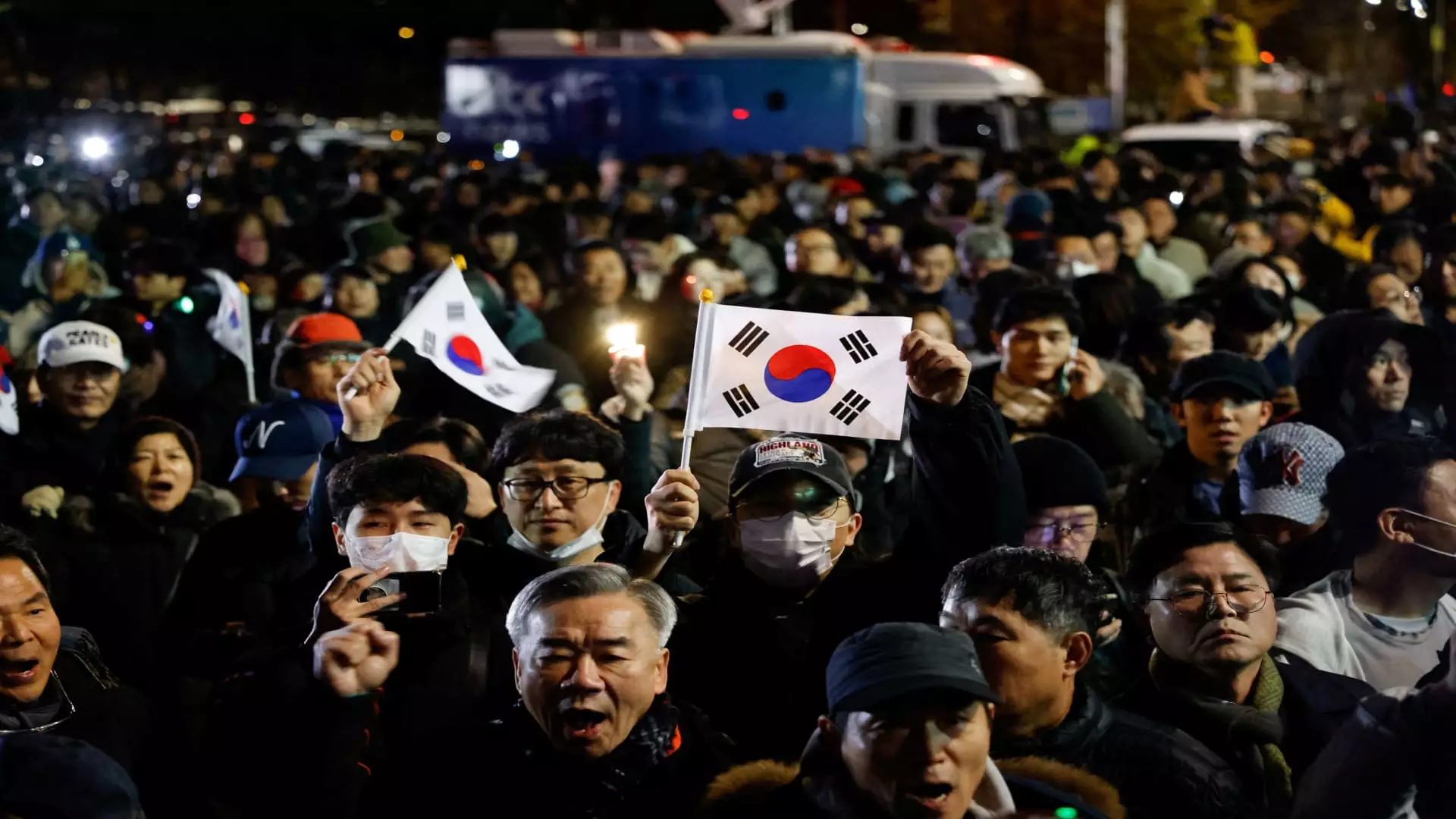The South Korean political landscape is engulfed in turmoil as President Yoon Suk Yeol faces rising dissent amid allegations of a failed attempt to impose martial law. This situation has not only put Yoon’s leadership under severe scrutiny but has also triggered a deeper constitutional crisis that could redefine the nation’s governance structure.
The crisis began with Yoon’s controversial decision to grant the military extensive emergency powers on December 3, ostensibly to combat what he labeled as “anti-state forces”. However, this declaration was short-lived, rescinded just six hours later after a unanimous vote in parliament struck down the decree. This miscalculation has led to significant backlash and dissatisfaction within military ranks, with influential military officials, including the acting defense minister, openly stating their refusal to follow similar orders in the future.
Yoon’s attempt to exert control over the military has spiraled into calls for accountability and even legal action against him. Allegations of treason and the ensuing criminal investigation being pursued by the Corruption Investigation Office for High-rank Officials have positioned Yoon in a precarious situation. Critics argue that such sweeping measures are indicative of an overreach of presidential power, threatening the democratic framework of South Korea.
Adding fuel to the fire, Yoon’s People Power Party (PPP) has considered delegating significant portions of presidential authority to the Prime Minister, which many observers view as a capitulation in the face of overwhelming dissent. As Yoon’s grip on power weakens, this delegation raises fundamental questions about the checks and balances inherent in South Korea’s political system. The Prime Minister’s ability to act as a substitute head of state, particularly in highly sensitive military and diplomatic roles, is contentious. As law professor Chang Young-soo points out, the legitimacy of a prime minister who is appointed rather than elected is inherently weaker than that of an elected official.
The opposition, represented chiefly by the Democratic Party, is vehemently opposed to any measures that would allow Yoon to retain even a semblance of power. They are actively pursuing legal routes to either impeach him or force his resignation, arguing that the current governance is unconstitutional.
The ongoing political unrest threatens not just democratic integrity but also the economic security of one of Asia’s largest economies. As tensions rise within the government, South Korea’s finance ministry is compelled to reassure markets, promising all-out efforts to stabilize financial operations. A lack of clear political direction and stability can hinder investment and exacerbate existing economic vulnerabilities, especially in industries that significantly rely on international partnerships, such as technology and manufacturing.
Lee Jae-myung, the opposition leader, warned that the ongoing crisis could have disastrous consequences for South Korea’s economy, particularly as it grapples with global supply chain issues exacerbated by simmering geopolitical tensions. Investors are wary of instability, resulting in a palpable strain on financial markets as the crisis deepens.
The context of these events is further punctuated by the international geopolitical landscape. The U.S., a steadfast ally of South Korea, has been closely monitoring the situation, with Defense Secretary Lloyd Austin postponing a visit to Seoul in light of the political turmoil. The reverberations of Yoon’s actions have raised alarms among South Korea’s allies, calling into question the nation’s reliability as a U.S. ally in an increasingly unstable region marked by North Korea’s provocations and its ties with Russia.
The timing of Yoon’s failed martial law attempt coincides with heightened security threats, as North Korea is reportedly bolstering military cooperation with Russia amid ongoing conflicts. This situation underscores that the stability within South Korean governance is not merely an internal issue but part of broader international security dynamics.
As the political crisis unfolds, it remains to be seen how Yoon will navigate the turbulent waters of domestic and international pressures. Calls for resignation and legal accountability grow louder, yet Yoon has, thus far, resisted stepping down. Given the weight of the allegations against him and the fragility of his administration, the necessity for resolution becomes paramount. Finding a path toward political stability, accountability, and restoration of public trust is vital for South Korea to overcome this crisis and maintain its standing in an uncertain global landscape.


Leave a Reply